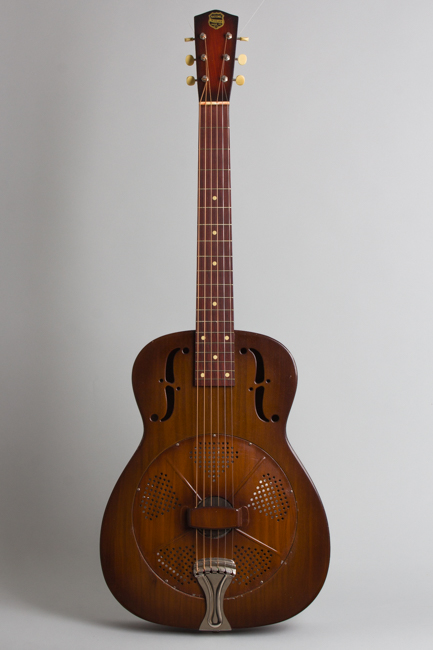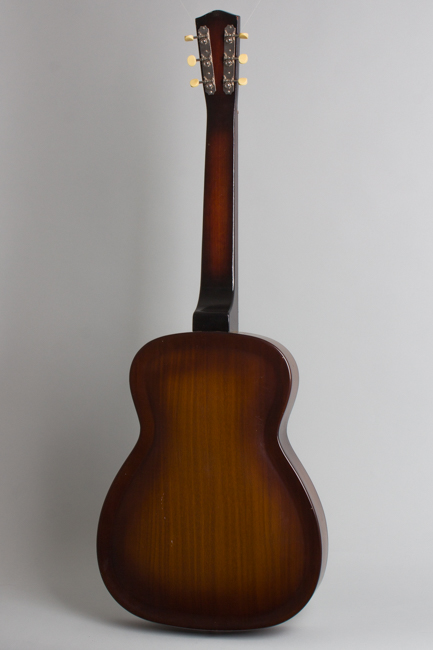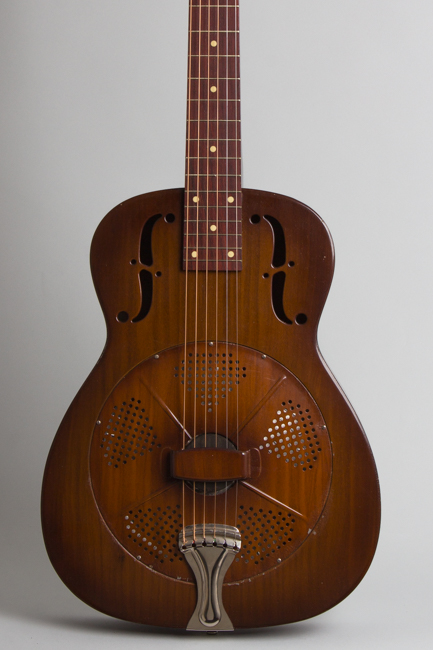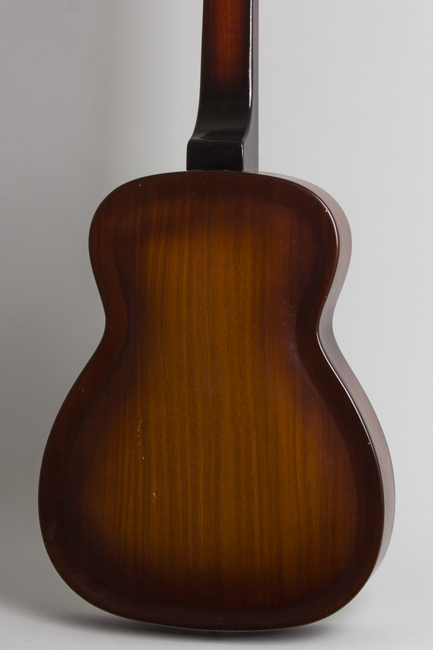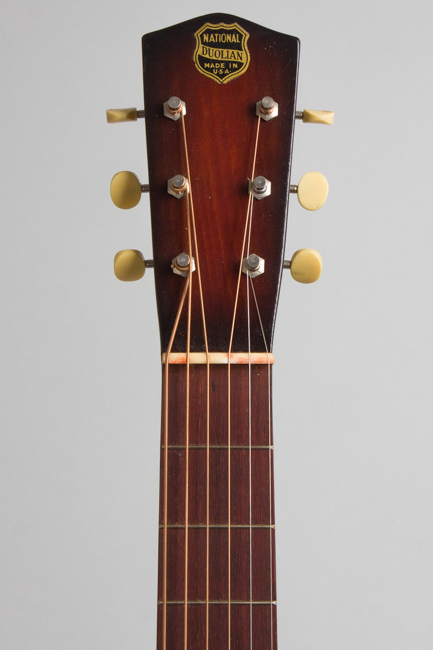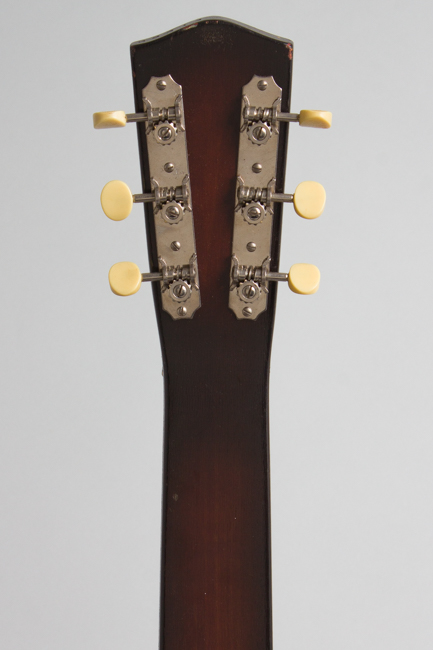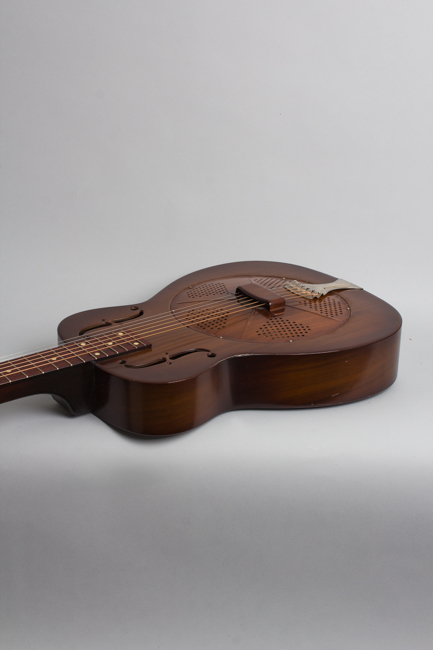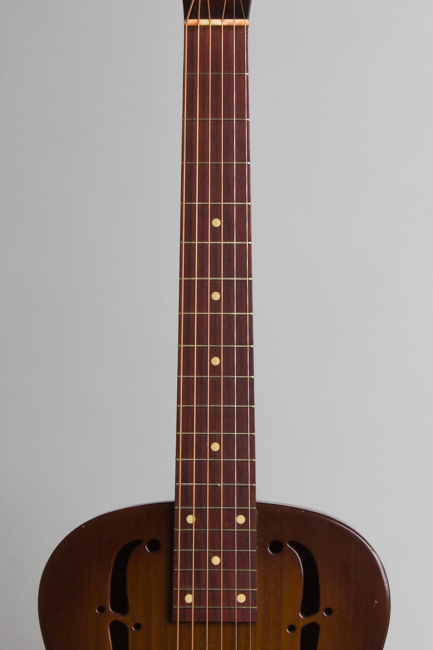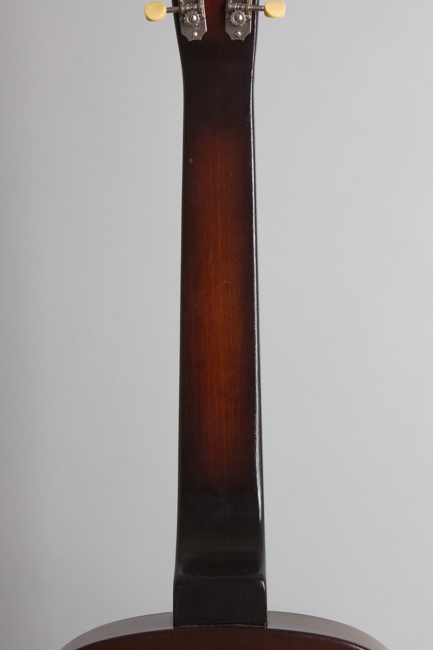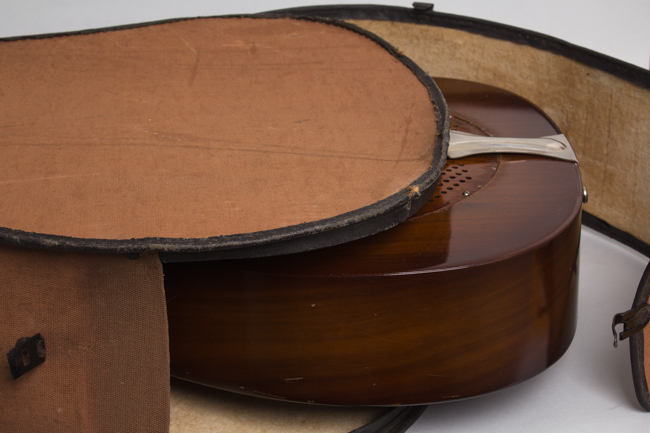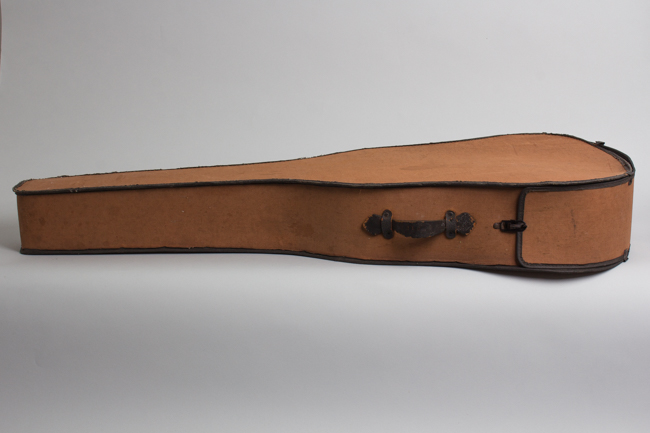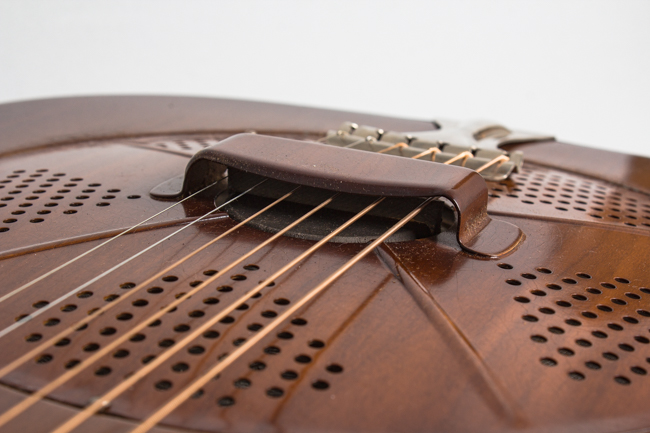National Duolian Squareneck Resophonic Guitar (1937)
This item is currently on hold.
Item # 13181
Prices subject to change without notice.
National Duolian Squareneck Model Resophonic Guitar (1937), made in Chicago, serial # B-2213, woodgrain enamel finish, steel body, basswood neck, rosewood fingerboard, original canvas case.
This is a very nice all original 14-fret Square-neck Hawaiian National Duolian with a particularly powerful sound. By the later 1930s the acoustic Hawaiian guitar was being supplanted by the electric, so purely Hawaiian National guitars from this period are far less common than the earlier ones. By this point National had merged with Dobro and had moved from Los Angeles to Chicago, having forsaken sunny California to be closer to the heart of the music industry.
The Duolial was National's classic "Working Man's" model, designed for students but also suitable for pro players on a budget. Later Midwest-made Duolians like this have a shorter steel body with rolled in f-holes, built in the 14-fret mode even when assembled as lap steel guitars. The chunky square neck has a solid headstock fitted with very early Kluson strip tuners, bearing a "National Duolian" decal on the face. Apparently it was not considered ironic at National/Dobro to make metal-bodied guitars with a faux wood finish, which is nicely done in enamel over the steel body!
While most slide players are more familiar with period Dobros these later Hawaiian steel-body Hawaiian Nationals have a powerful punchy sound that really cuts through in any musical context. This one is an excellent player for any slide style and is one of the better sounding ones we have ever heard.
Overall length is 38 1/2 in. (97.8 cm.), 14 in. (35.6 cm.) wide at lower bout, and 3 1/4 in. (8.2 cm.) in depth at side, taken at the end block. Scale length is 25 in. (635 mm.). Width of nut is 2 in. (51 mm.).
This Duolian remains 100% original including the finish, cone, biscuit and tuners; it really appears not much used since the 1930s. There is hardly any play wear; it shows some light handling wear overall including scuffs and chips but the instrument remains very well-preserved. The most notable flaw is some finish lifting and minor disturbance from corrosion under the enamel around the edge of the coverplate, likely caused by moisture long ago. The instrument has seen no repairs and plays perfectly in the Hawaiian style. It resides in an amazingly well preserved original canvas case, with some water staining but still in one piece nearly 90 years along. Overall Excellent - Condition.
This is a very nice all original 14-fret Square-neck Hawaiian National Duolian with a particularly powerful sound. By the later 1930s the acoustic Hawaiian guitar was being supplanted by the electric, so purely Hawaiian National guitars from this period are far less common than the earlier ones. By this point National had merged with Dobro and had moved from Los Angeles to Chicago, having forsaken sunny California to be closer to the heart of the music industry.
The Duolial was National's classic "Working Man's" model, designed for students but also suitable for pro players on a budget. Later Midwest-made Duolians like this have a shorter steel body with rolled in f-holes, built in the 14-fret mode even when assembled as lap steel guitars. The chunky square neck has a solid headstock fitted with very early Kluson strip tuners, bearing a "National Duolian" decal on the face. Apparently it was not considered ironic at National/Dobro to make metal-bodied guitars with a faux wood finish, which is nicely done in enamel over the steel body!
While most slide players are more familiar with period Dobros these later Hawaiian steel-body Hawaiian Nationals have a powerful punchy sound that really cuts through in any musical context. This one is an excellent player for any slide style and is one of the better sounding ones we have ever heard.
Overall length is 38 1/2 in. (97.8 cm.), 14 in. (35.6 cm.) wide at lower bout, and 3 1/4 in. (8.2 cm.) in depth at side, taken at the end block. Scale length is 25 in. (635 mm.). Width of nut is 2 in. (51 mm.).
This Duolian remains 100% original including the finish, cone, biscuit and tuners; it really appears not much used since the 1930s. There is hardly any play wear; it shows some light handling wear overall including scuffs and chips but the instrument remains very well-preserved. The most notable flaw is some finish lifting and minor disturbance from corrosion under the enamel around the edge of the coverplate, likely caused by moisture long ago. The instrument has seen no repairs and plays perfectly in the Hawaiian style. It resides in an amazingly well preserved original canvas case, with some water staining but still in one piece nearly 90 years along. Overall Excellent - Condition.
